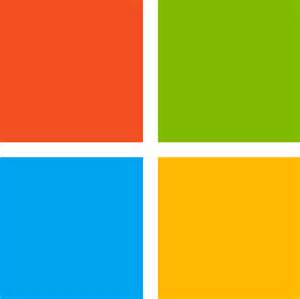Microsoft has all but given up on the consumer smartphone business, as the Redmond-based firm has announced it is cutting 1,850 jobs, and is setting aside nearly a $1 billion to cover the costs of shutting operations down. Up to 1,350 of the terminated positions will be in Finland. The employees are all expected to have been shown the door by the year’s end.

Microsoft’s share of the consumer smartphone market recently dipped below 1%, and while the company insists it will still be a competitive in the corporate smartphone boxing ring, that claim sounds more like the claim of a punch drunk boxer than that of an up-and-coming contender that actually has a shot at the title.
Microsoft acquired Nokia’s smartphone business for $7.2 billion in 2014, while the company was still under the guiding hand of Steve Ballmer. Today’s announcement of a $950 million write-off is in addition to the $7.8 billion written off when the firm cut 7,800 jobs last year, in an effort to refocus its Windows Phone platform.
The full text of the memo to all employees is available below (via Re/code):
To: Microsoft – All Employees
From: Terry Myerson
Date: Wednesday 5/25, 2AM Pacific Time
Subject: Focusing our phone hardware effortsTeam,
Last week we announced the sale of our feature phone business. Today I want to share that we are taking the additional step of streamlining our smartphone hardware business, and we anticipate this will impact up to 1,850 jobs worldwide, up to 1,350 of which are in Finland. These changes are incredibly difficult because of the impact on good people who have contributed greatly to Microsoft. Speaking on behalf of Satya and the entire Senior Leadership Team, we are committed to help each individual impacted with our support, resources, and respect.
For context, Windows 10 recently crossed 300 million monthly active devices, our Surface and Xbox customer satisfaction is at record levels, and HoloLens enthusiasts are developing incredible new experiences. Yet our phone success has been limited to companies valuing our commitment to security, manageability, and Continuum, and with consumers who value the same. Thus, we need to be more focused in our phone hardware efforts.
With this focus, our Windows strategy remains unchanged:
1. Universal apps. We have built an amazing platform, with a rich innovation roadmap ahead. Expanding the devices we reach and the capabilities for developers is our top priority.
2. We always take care of our customers, Windows phones are no exception. We will continue to update and support our current Lumia and OEM partner phones, and develop great new devices.
3. We remain steadfast in our pursuit of innovation across our Windows devices and our services to create new and delightful experiences.Our best work for customers comes from our device, platform, and service combination.
At the same time, our company will be pragmatic and embrace other mobile platforms with our productivity services, device management services, and development tools — regardless of a person’s phone choice, we want everyone to be able to experience what Microsoft has to offer them.
With that all said… I used the words “be more focused” above. This in fact describes what we are doing (we’re scaling back, but we’re not out!), but at the same time I don’t love it because it lacks the emotional impact of this decision. When I look back on our journey in mobility, we’ve done hard work and had great ideas, but have not always had the alignment needed across the company to make an impact. At the same time, Ars Technica recently published a long story documenting our journey to create the universal platform for our developers. The story shows the real challenges we faced, and the grit required to get it done. The story closes with this:
And as long as it has taken the company, Microsoft has still arguably achieved something that its competitors have not… It took more than two decades to get there, but Microsoft still somehow got there first.
For me, that’s what focus can deliver for us, and now we get to build on that foundation to build amazing products.
Terry


